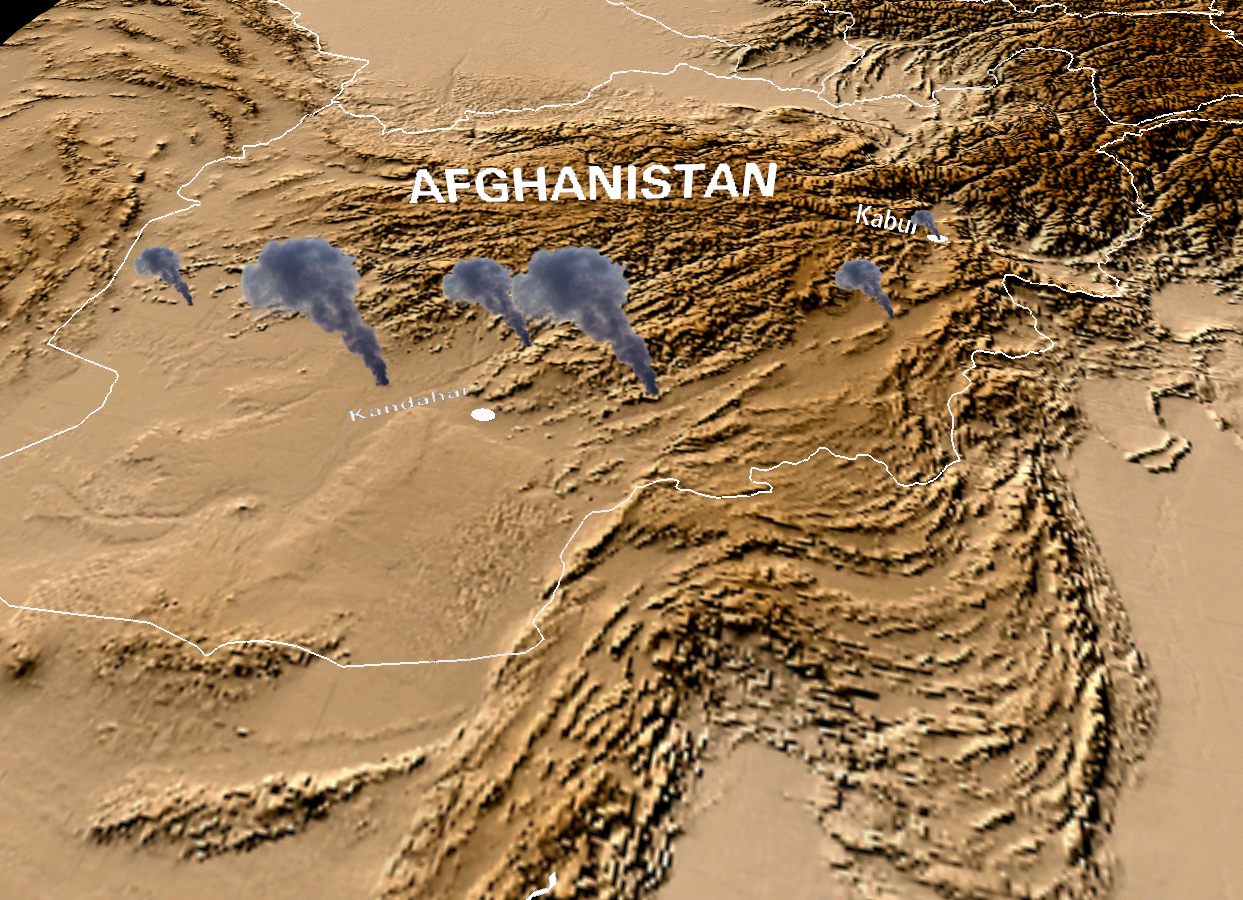PESHAWAR, Pakistan — Clashes between Pakistani tribesmen and foreign militants near the Afghan border this week have left up to 160 people dead, including about 130 Uzbek and Chechen fighters, the provincial governor said Friday.
Ali Mohammed Jan Aurakzai, the top government official in Northwest Frontier Province, said between 25 and 30 tribesmen also had died in fighting that started Monday in the South Waziristan tribal region and was continuing Friday.
The government says the bloodletting shows the success of its decision to use local tribesmen to root out foreign militants linked to Al Qaeda. However, experts say it also exposes authorities' lack of control of a region also used by the Taliban to support attacks in Afghanistan.
Aurakzai, a retired Pakistani army general, said tribal militants had captured another 63 foreigners and were hunting 200 more who had scattered into the area's mountains.
"Our forces are not involved. Local tribesmen are not allowing foreigners to live in their areas," he told reporters at his British colonial-era residence in the regional capital, Peshawar.
The death toll from the fighting in several towns in South Waziristan has risen rapidly, and had stood at about 135 on Thursday. Officials say the two sides have observed brief truces to allow for the burial of dead, but that attempts by local militant leaders to broker an agreement to halt the fighting had failed.
Hundreds of Central Asian and Arab militants linked to Al Qaeda fled to this semiautonomous region after the collapse of the Taliban regime in Afghanistan and forged alliances with local tribes. Other Uzbek Islamists opposed to the regime of President Islam Karimov in their homeland have reportedly since joined them from Uzbekistan.
Aurakzai said that Tahir Yuldash, the leader of the Islamic Movement of Uzbekistan, a militant opposition group, was in the area when fighting started but would not say what had happened to him.
As part of its support of the U.S.-led war on terror, Pakistan launched military operations in 2004 to wipe the foreign militants out. They succeeded in busting camps used by Al Qaeda but suffered hundreds of casualties and failed to expel the foreign fighters.
The military said at the time that Yuldash, one of Uzbekistan's most wanted men, was wounded but escaped during a raid on a suspected Al Qaeda camp near Wana, South Waziristan's main town.
More recently, Pakistan has cut deals with pro-Taliban militants and urged local tribal elders to police the region themselves.
That has sparked concern that Taliban and other militants now have freer rein to launch crossborder attacks into Afghanistan on U.S. and NATO forces. American officials are also worried it has allowed Al Qaeda to regroup.
U.S. Secretary of State Condoleezza Rice said on Wednesday that the fighting between tribal groups and foreign fighters could help defeat extremists.
Some analysts, however, say militants with links to Taliban and Al Qaeda are involved on both sides of the current conflict, which also pits local tribes against each other, and that blood feuds could deepen insecurity in a region viewed as a possible hiding place for Usama bin Laden and Ayman al-Zawahri.
CommentThis is very interesting. It looks like al Qaeda may be starting to run out of places to hide. Something similar is happening in 'Iraq, where two tribes recently joined a Sunni tribal alliance dedicated to evicting al Qaeda.
Via FOX News.


